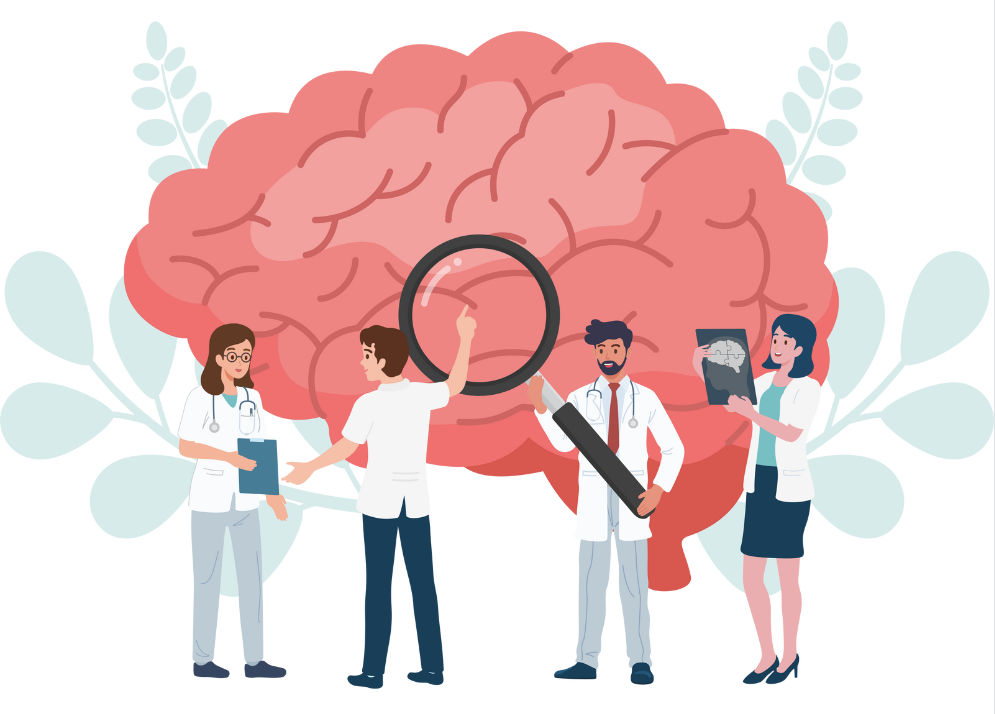Information Processing Research Study
Researchers at the University of Minnesota are conducting a study with healthy volunteers to better understand how individuals with and without psychotic disorders process information.

Fast Facts

No Personal or Family History of Psychosis

Ages 15-45

Compensation Provided

Conducted in
Minneapolis, MN
Study Background
How does information travel through the brain?
The purpose of The State Representation in Early Psychosis (STEP) study is to better understand how people with and without psychotic disorders process information, and how that information travels through the brain.
Over the course of 6 months, participants will complete computerized tasks, MRI scans, EEG tests, and interviews about their life and feelings. We hope the findings from this study will help researchers develop and improve future cognitive training programs to help individuals with psychosis.

Study Background
How does information travel through the brain?

The purpose of The State Representation in Early Psychosis (STEP) study is to better understand how people with and without psychotic disorders process information, and how that information travels through the brain.
Over the course of 6 months, participants will complete computerized tasks, MRI scans, EEG tests, and interviews about their life and feelings. We hope the findings from this study will help researchers develop and improve future cognitive training programs to help individuals with psychosis.

Additional Information
The goal of our study is to understand how individuals with a psychosis spectrum illness (such as schizophrenia, schizoaffective disorder, attenuated psychosis, schizophreniform, major depression with psychosis, or bipolar with psychosis) think, feel, and understand their surroundings.
You may qualify for a study if you meet the following criteria.
Inclusion Criteria:
- Ages 15-45
- No personal or family history of psychosis (e.g., schizophrenia, bipolar disorder with psychosis)
- Speak English
- No personal diagnosis of a major neurological disorder (e.g., seizures, epilepsy, Parkinson’s)
- No personal diagnosis of autism
Participation in this study involves 3 visits at the beginning doing virtual interviews and questionnaires and in-person computerized tasks and MRI brain scans, in which participants have an EEG test at the same time. Then, 6 months later participants will complete another 2 visits doing these same tasks. In total, this study lasts approximately 6 months and involves 5 study visits (in total, about 15 hours).
Participation in the optional phase 2 of the study involves 2-3 visits (in total, about 18 hours) over an additional 6 months and would involve the same above tasks with the addition of cognitive training on an iPad.
Eligible participants will be compensated! Compensation breakdown is as follows:
- Initial baseline visits: $245
- 6 month Follow Up visits: $215
- In addition, there will be monthly check-in surveys between visits, which are $5 each month
- Total: $485
Phase 2 payments:
- Training Period: Up to $350
- Post-Training visits: Up to $215
- Final Follow Up visits: Up to $265
- In addition, there will be monthly check-in surveys between visits, which are $5 each month
- Total: Up to $850
There is no cost for you to participate in our research study.
